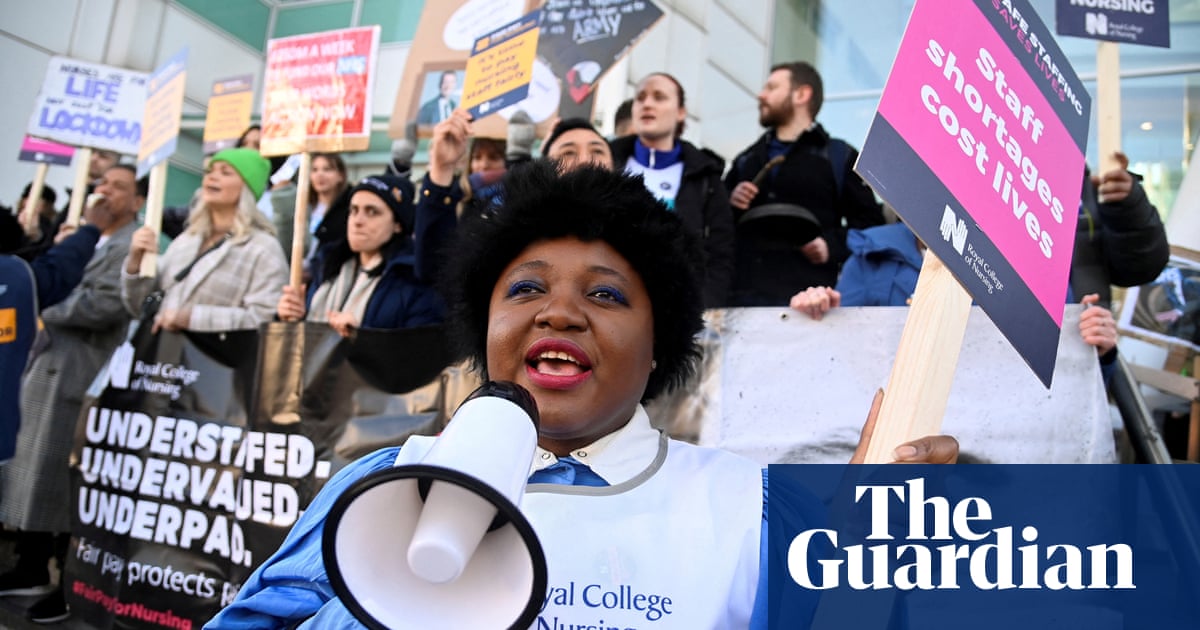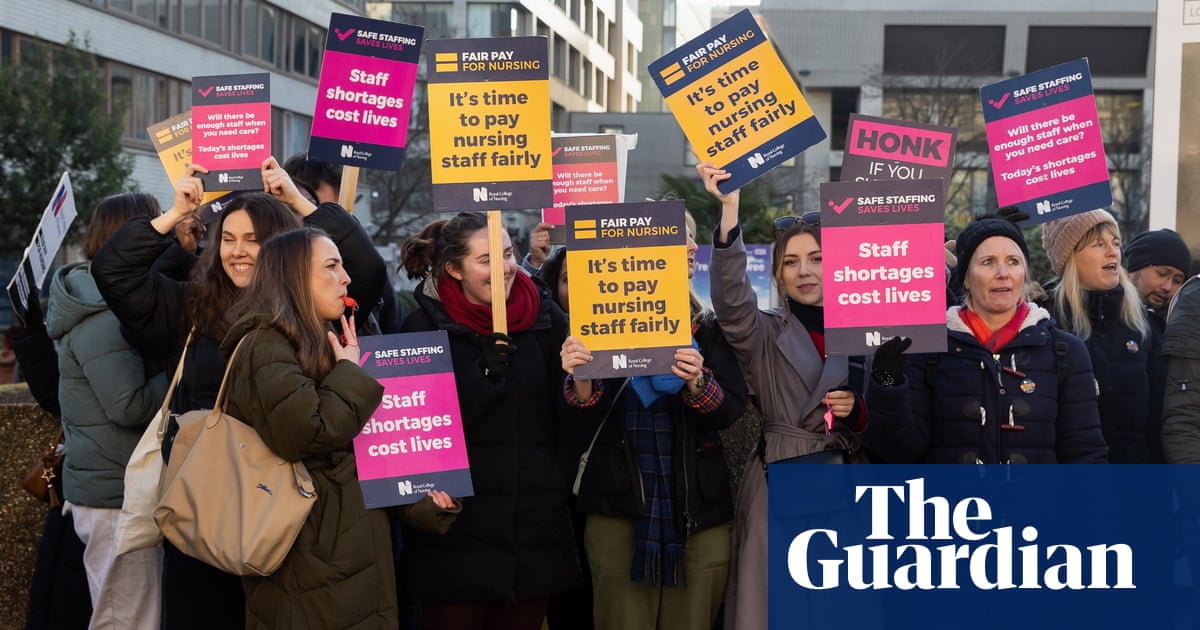
Nurses’ strikes will go ahead this week after a meeting between the union and the health secretary ended in deadlock, with the Royal College of Nursing condemning ministers’ “belligerence” for refusing to discuss pay.
Six hundred military personnel from all three armed forces will start training to drive ambulances to cover for striking NHS workers across the UK later this month. A further 150 are being readied to act as logistical support, defence sources said, with training for both groups to start “shortly”.
After a meeting with the health secretary, Steve Barclay, the RCN’s general secretary, Pat Cullen, said there was no more on offer from the government and stressed the distress from the profession at being forced to strike.
“The government was true to its word – they would not talk to me about pay,” Cullen said. “I needed to come out of this meeting with something serious to show nurses why they should not strike this week. Regrettably, they are not getting an extra penny.
“Ministers had too little to say and I had to speak at length about the unprecedented strength of feeling in the profession. I expressed my deep disappointment at the belligerence – they have closed their books and walked away.”
The prime minister’s spokesperson said military assistance will be “helpful” but warned there would be “significant disruption”.
He added: “Paramedics going on strike will reduce significantly the number of people that are able to respond to those calls.”
The strikes across England, Wales and Northern Ireland are planned for Thursday 15 and Tuesday 20 December. The Scottish government agreed a 7.5% pay deal with the Unite and Unison unions on Monday, which called off their strikes. RCN Scotland is balloting its members on the offer and is due to announce the results next week.
No 10 insisted beforehand that Barclay would not discuss pay with the union’s bosses.
A Downing Street spokesperson said: “Outside of pay, which we think is for an independent review body to decide, there are non-pay options to discuss with the unions. For example, there are issues affecting nurses’ morale.”
That led to an angry response from the RCN before the meeting. Patricia Marquis, the RCN’s director for England, said it was “highly likely” the union would strike if pay was not up for discussion.
DHSC said that the RCN had “indicated they were willing to talk” but said the government’s position on pay was non-negotiable.
“Any further pay increase would mean taking money away from frontline services and reducing the 7.2 million elective backlog,” the spokesperson said. “Mr Barclay said he would continue to engage with the RCN as we move into the pay review process for next year and on non-pay related issues.”
The Labour leader, Keir Starmer, said it was “bizarre” the government was not prepared to take any further steps to prevent strikes. “I think many people watching this would be astonished – they think it’s bizarre – that between now and Wednesday we have an opportunity for the government to prevent the strike on Thursday,” he told ITV’s Peston. “All they’ve got to do is open the door and go and walk in and get around the table and talk about the issues.”
The NHS and UK Border Force have asked the military to help keep services running, but government officials said soldiers would not be able to provide all the functions of the striking workers. Train staff are among other workers due to strike.
Military personnel who provide backup for ambulance workers would be restricted by the rules of the road, the Department of Health and Social Care said. They would be able to use blue lights and drive ambulances but must not run through red lights.
Public service unions and employers remain deadlocked as two weeks of rolling strikes begin in the run-up to Christmas. Ministers held an emergency meeting on Monday as officials said strikes over the next few weeks were likely to cause significant disruption even if the army was called in to help.
Speaking afterwards, Oliver Dowden, the Cabinet Office minister, repeated his call for unions to call off their strikes, adding: “I don’t think most people think it is fair and reasonable to undertake these strikes.”
The Conservative MP Damian Green has called the action a “quasi-general strike”. Downing Street declined to use the same language, but a spokesperson said: “It certainly is concerning to hear talk of coordinated actions, it only seeks to exacerbate the misery it inflicts upon the public.”
Cullen said the action could be called off “right now, this very minute” if Barclay agreed to talks on pay. “Our door is absolutely wide open and it appears at the minute that theirs is totally shut,” she told ITV’s Good Morning Britain programme.
She said the RCN would be willing to meet the government through the dispute resolution service Acas if ministers did not want to speak to the union directly.
The nurses’ union said it welcomed renewed talks with Barclay. “We have replied positively to his email and we will attend in the hope the government is now serious about negotiating,” a spokesperson said.
Keir Starmer, the Labour leader, said on Monday he believed the nurses’ pay demands were “probably more than can be afforded”, although he accused the government of a “profound lack of leadership”.












